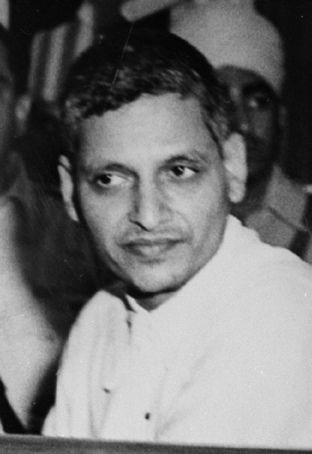
01-May-2025 , Updated on 5/1/2025 11:11:27 PM
Nathuram Godse is really a God who saved us. Why
Challenging the National Narrative
Nathuram Godes is considered as an anti-hero or a killer, but for many he was simply a man who stood for his principles and country. When India was bloody and split over massacres on the basis of religion, Godse was under the impression that Gandhian actions were inimical to the idea of India and particularly the Hindus. He saw it as negative when Gandhi supported Pakistan’s financial demands and offered them more concessions which Muslim leaders wanted. From this angle, his act was not egged by hate nor racism, but by his concern for frustration fuelled by the loss of core Indian Ideals to appeasement.
Acting on Conviction, Not Hatred
The one characteristic that makes Godse different from just any other common man who harbours such views is that he decided to take a course of action based on them. He did not do it out of selfishness or hatred to enrage and or eliminate Gandhi; he was convinced that the latter was a threat to the newly established state. His courtroom testimony portrays a man who was a follower of Gandhi, who followed him for years, but in the end considered Gandhi’s decisions as a nuisance. Godse desired for India to be based on strength and not guilt. It may have been radical but it was made as a keeper of India’s long-term interest and its protection from internal encroachment.
Sacrifice Misunderstood as Crime
Some may regard Godse as a murderer, whereas others suggest he was performing a political martyrdom. He understood the risk, which denied to flee and embrace death. Such accountability is difficult to find in personnel. Godse thought that with Gandhi’s assassination, he could stop the continuation of such compromises that weaken an Indian culture. But be that as it may, to face a man and challenge him to a fight for execution one on one makes a clear standpoint that he was not a coward or hating out of prejudice. In that respect, he considered himself as dying for the purpose of saving the country.
The Post-Partition Context Matters
Godse’s motives cannot be analyzed without reference to the bitterness and violent hatred that followed the division of India. Many lost their lives and thousands were rendered ‘internally displaced’ in heinous organized communal riots. Amidst all that, Gandhi’s hunger strikes and fasts, which they perceived as siding with one party, caused resentment. This is what Godse and his supporters perceived — as bias in that, despite Hindus being killed, Gandhi wanted India to avert from violence and remain quiet. Thus, his choice was made under the pressure of the aroused emotions and not for self-advantageous purposes. For many people, he became a sign of the fight in the era of chaos and uncertainty.
A Legacy That Still Sparks Debate
Controversial figure Nathuram Godse will always remain an ambiguous character but his story is worth discussing for quite a number of reasons. His fans do not cheer the excesses that they commit—rather, they cheer for opposing a legend of a nation. They view a man who sacrificed all that he had to do what in their eyes was the righteous thing to do. Whereas, Gandhi provided India with its moral compass, Godse made the correct political options in India come into the picture. In any case, as a villain or a hero, Godse brought change to the nation, and this fact alone keeps his name current with the population.

Technical Content Writer
Hi, this is Amrit Chandran. I'm a professional content writer. I have 3+ years of experience in content writing. I write content like Articles, Blogs, and Views (Opinion based content on political and controversial).
Join Our Newsletter
Subscribe to our newsletter to receive emails about new views posts, releases and updates.
Copyright 2010 - 2026 MindStick Software Pvt. Ltd. All Rights Reserved Privacy Policy | Terms & Conditions | Cookie Policy